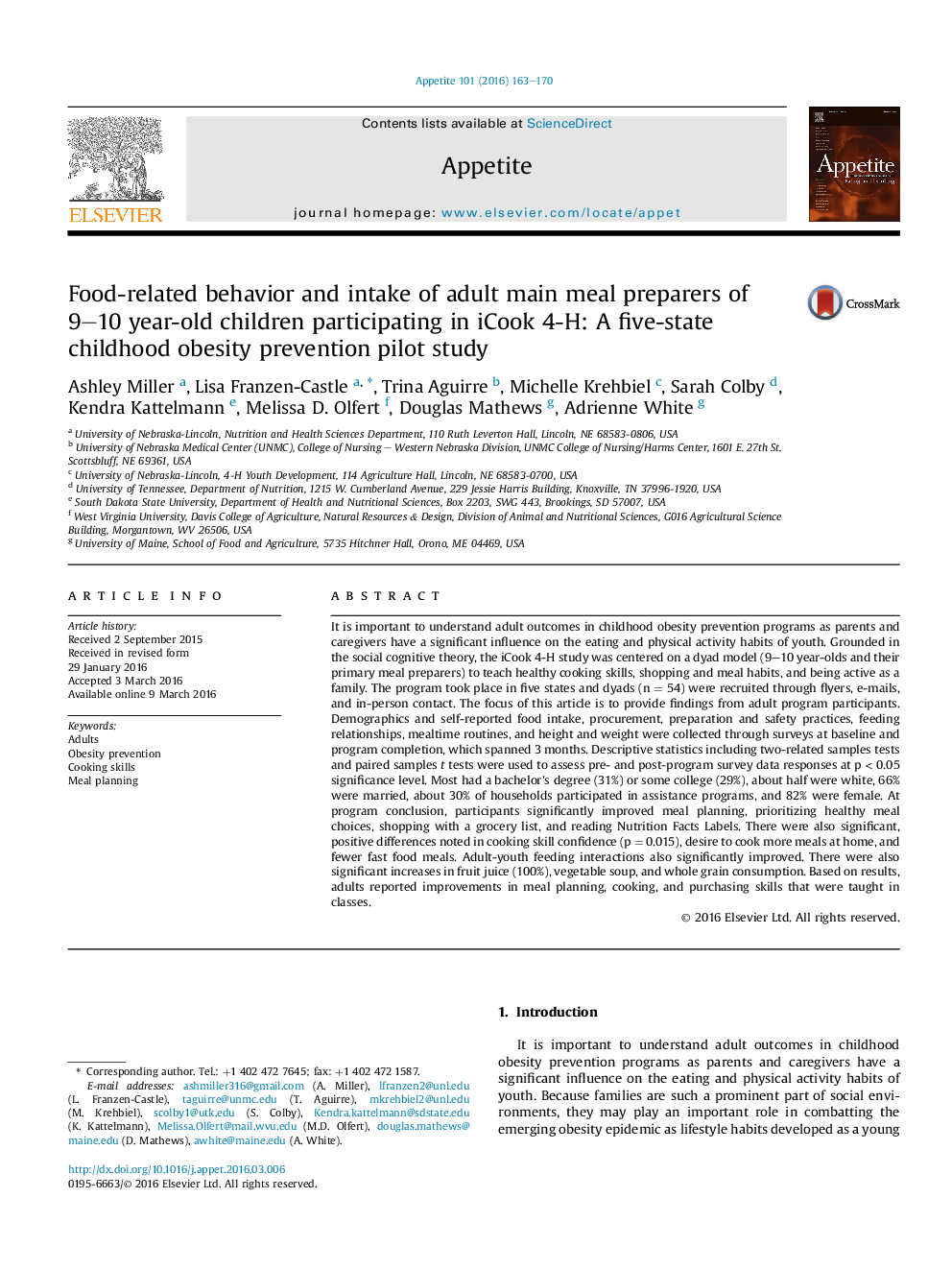| کد مقاله | کد نشریه | سال انتشار | مقاله انگلیسی | نسخه تمام متن |
|---|---|---|---|---|
| 939300 | 1475379 | 2016 | 8 صفحه PDF | دانلود رایگان |
It is important to understand adult outcomes in childhood obesity prevention programs as parents and caregivers have a significant influence on the eating and physical activity habits of youth. Grounded in the social cognitive theory, the iCook 4-H study was centered on a dyad model (9–10 year-olds and their primary meal preparers) to teach healthy cooking skills, shopping and meal habits, and being active as a family. The program took place in five states and dyads (n = 54) were recruited through flyers, e-mails, and in-person contact. The focus of this article is to provide findings from adult program participants. Demographics and self-reported food intake, procurement, preparation and safety practices, feeding relationships, mealtime routines, and height and weight were collected through surveys at baseline and program completion, which spanned 3 months. Descriptive statistics including two-related samples tests and paired samples t tests were used to assess pre- and post-program survey data responses at p < 0.05 significance level. Most had a bachelor's degree (31%) or some college (29%), about half were white, 66% were married, about 30% of households participated in assistance programs, and 82% were female. At program conclusion, participants significantly improved meal planning, prioritizing healthy meal choices, shopping with a grocery list, and reading Nutrition Facts Labels. There were also significant, positive differences noted in cooking skill confidence (p = 0.015), desire to cook more meals at home, and fewer fast food meals. Adult-youth feeding interactions also significantly improved. There were also significant increases in fruit juice (100%), vegetable soup, and whole grain consumption. Based on results, adults reported improvements in meal planning, cooking, and purchasing skills that were taught in classes.
Journal: Appetite - Volume 101, 1 June 2016, Pages 163–170
